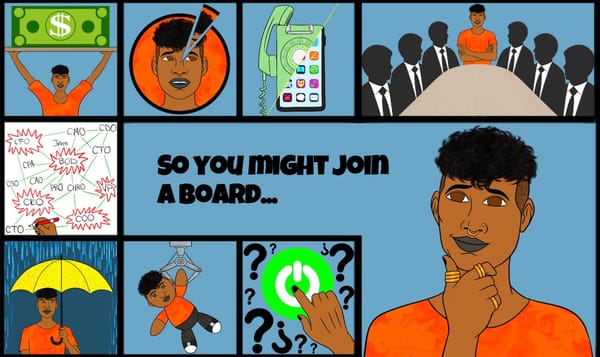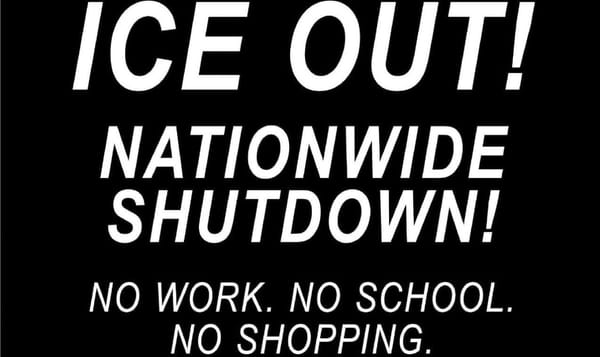everyone dies but me
leaving the death cult in denial

You've seen the video. We've all seen the video. Joni Ernst, Senator from Iowa, at a town hall discussing Medicaid cuts. It's two weeks old now in what feels like an endless cycle of bad news, but it's stayed with me. If you haven't seen it yet, I'll try to break your streak of good luck now.
sen. joni ernst telling a crowd, "we're all going to die." this is not something you can say on a plane, either.
The clip above omits the slur she used for undocumented americans. I'll never be over the callous yet casual way they dehumanize non-white immigrants. What do you feel when you watch a video like this? Sad is the first emotion for me, then anger, incredulity, and frustration. I felt empathy for the people in the audience who took time out of their day to rage in the face of indifference. Finally, I feel resolve. That's not me. Those aren't the values I want, or the way I try to live my life.
I know we're all going to die. Every living thing does. I know that I myself will die some day. I refuse to die because a millionaire or billionaire wants me to. My read of republicans, and many of their voters, is that they believe they'll never have to face the consequences of their actions. "Everyone dies... but I'm special."
we can’t stop a death cult
Right now the rulers of america belong to a death cult. They're explicit in their white supremacy. Blatant in their homophobia. Proud in their transphobia. Their comfort lies in the belief that their suffering, even their death is an acceptable cost. Their bargain, the reason they accept this, is that they want to see us suffer and die first. When Ernst says we're all going to die, she means that our deaths won't matter to her at all. How do we expect to reason with that? I am convinced we can't. All we can do is push away from it. Create and cultivate what we need.
pushing away
From the perspective of our ancestors, we are survivors. We've made it so far. Too many people sadly don't make it through the machine. But I take solace in the loving corrections we have ahead. Here are a few ways that the struggle continues.
Underground movements. Many of us come from lineages that faced greater persecution than this. Our future selves may look back on us and think, "wow. holy shit. you lived through this??" Survival is enough for now. I'm thinking of things like DIY hormone replacement therapy. People are pushing back against the regime in ways I don't even know about. We have so much to learn from each other. But mere survival is not a long-term strategy. Drew Burnett published an essay after the supreme court ruled in favor of oklahoma‘s ban on healthcare for trans youth. She wrote:
As we continue to face political and cultural losses in the U.S., the U.K., and beyond, I don’t want trans people of any age to just keep on living. That’s a bare minimum. I want all of us, young and old, to get access to the healthcare we need even if that requires breaking the law. I want all of us to find community, whether online or in person, that doesn’t just remind us we’re not alone but that makes us laugh and feel challenged and feel seen in ways that go beyond gender identity. I want those of us who are artists to get to create. I want those of us who are athletes to get to compete. I want the world we were fighting for before the tide turned against us. We can still fight for that world.
Public solidarity. Between 5 and 11 million people attended a No Kings rally in their area. In Seattle, over 70 thousand people turned out. It was a nice day, which means 70K people were out there instead of getting ice cream or hiking. Some may argue that these single-day protests don't create lasting change. The same day we were all at the park, ICE detained people forced to report to an immigration center on a weekend. Large protests can distract from the work of real change, but they still have a place in the work ahead. These massive protests do raise awareness among people who don't follow the news. It gives people a sense of safety in numbers. It could even give people dissatisfied by a single-day march the push they need to dig deeper. Plus, 11 million people is just about the number we need to change things. To be honest, I'll take it.
We have already won. The death cult knows it's dying out. Progress is always met with a backlash from people in power. My favorite article last week was the one from Crimethinc about mutual aid. One paragraph named Louis-Auguste Blanqui, a person I didn't already know of. He was a political dissident and the sole prisoner of the island Fort du Taureau. About him they write (emphasis mine):
Imprisoned in the Fort du Taureau, Louis Auguste Blanqui takes solace in knowing that somewhere across the ocean, the air he exhales is breathed in turn by the trees of the Brazilian rainforest, by his comrades in exile in London, even by the officials who ordered his arrest, despite their vendetta against sharing. He reminds himself that the same water his captors ration to him in a cup nonetheless crashes in great waves against the walls of the fort—that across hundreds of millions of years, every single drop of that water has passed through countless living things, traveling through the sky and back into the earth again and again. The very language with which he formulates and records these comforting thoughts has been fashioned and refined by a hundred billion tongues in a collective endeavor stretching back to the dawn of humanity.
Collectivity is inevitable, ineradicable. Eventually, it will triumph over the temporary error of avarice.
We remember what we survive. Our methods, and so many more, create new pathways for others to follow. "We can't go back" is more than a rallying cry. It's a reminder that we now know something better is possible. It's not fiction. It's a foundation. We can't go back, not to the past and not to the compromise. I want the full deal that everyone else has. We're all going to die, yes. But while we're here, together, on the only world we'll ever know? We can reject the death cult. We can choose to live.



